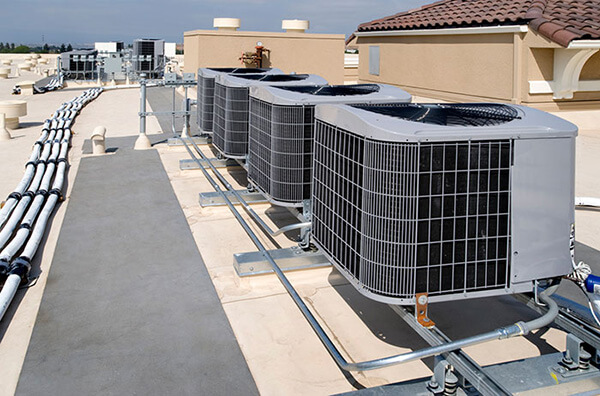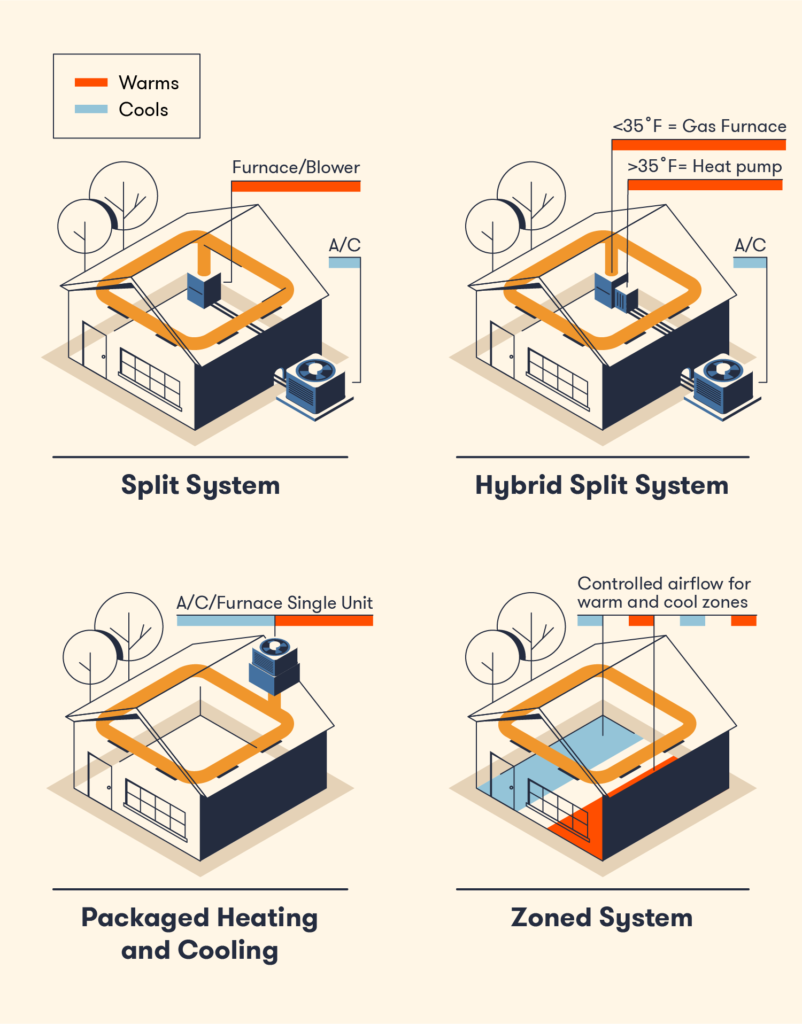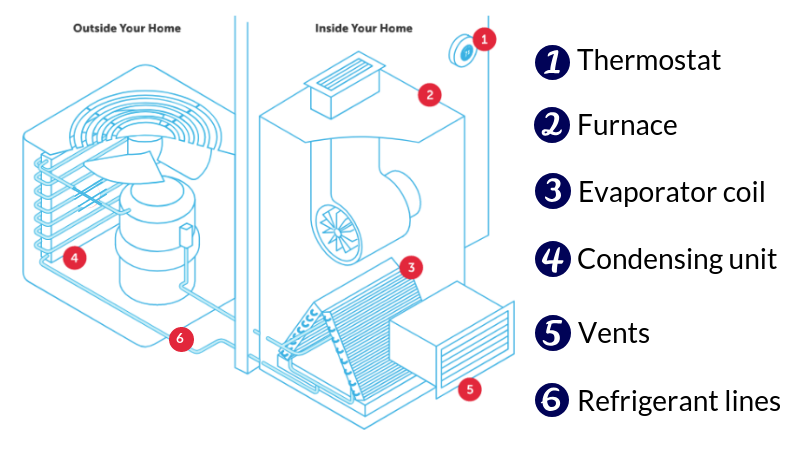
In today’s world, it is essential to keep your home comfortable and energy efficient. One of the most important components to achieving this goal is a properly functioning HVAC system. But what exactly is an HVAC system and how does it work? In this blog post, we explore the ins and outs of HVAC systems, from their parts and functions to how they help maintain your indoor air quality. We’ll also discuss potential problems that may arise with your system and what you can do to keep them running smoothly. Read on to become a certified HVAC expert!
What is HVAC?
An HVAC system is a heating, ventilation, and air conditioning system that helps to regulate the temperature and humidity in a space. It does this by circulating air throughout the space and exchanging it with outside air. The system can be used to heat or cool a space, depending on the needs of the occupants.
The Different Types of HVAC Systems

Heating, ventilation, and air conditioning (HVAC) systems are used to regulate the temperature, humidity, and quality of the air in homes and buildings. There are several different types of HVAC systems, each with its own advantages and disadvantages.
The most common type of HVAC system is the central air conditioner, which is typically used in homes and small office buildings. Central air conditioners circulate cool air through a network of ducts that connect to rooms or spaces that need to be cooled.
Another type of HVAC system is the split-system air conditioner, which consists of two units: an outdoor unit that contains the compressor and condenser, and an indoor unit that contains the evaporator coil. Split-system air conditioners are usually used in larger buildings such as office towers or shopping malls.
Heat pumps are another type of HVAC system that can be used for both heating and cooling. Heat pumps work by transferring heat from one place to another; during the winter, they transfer heat from the outdoors into your home, and during the summer, they transfer heat from your home to the outdoors.
Geothermal systems are a type of HVAC system that uses underground pipes filled with a water-based solution to exchange heat between your home and the ground. Geothermal systems are very efficient but can be expensive to install.
How Does an HVAC System Work?

An HVAC system is a home heating, ventilation, and air conditioning system that uses a network of ducts to distribute conditioned air throughout the house. The system includes a furnace or heat pump to generate heat, a central air conditioner to cool the air, and a blower to circulate the treated air through the ducts.
The furnace or heat pump is the heart of the system. It burns natural gas, propane, oil, or electricity to generate heat. The central air conditioner uses refrigerant gas to cool the air. The blower circulates the air through the ducts and into each room of the house.
The HVAC system is controlled by a thermostat that turns the system on and off as needed to maintain the desired temperature in the home. The thermostat can be programmed to maintain different temperatures at different times of day or week, depending on your needs.
The Components of an HVAC System

There are four main components to an HVAC system: the furnace, the air conditioner, the evaporator coil, and the ductwork. The furnace is the heart of the system, providing warmth in the winter and circulating air throughout the home. The air conditioner keeps the home cool in the summer by drawing heat out of the air. The evaporator coil removes moisture from the air, making it comfortable to breathe. The ductwork distributes conditioned air throughout the home.
The Benefits of an HVAC System
The HVAC system is a vital part of any home or office. It provides heating and cooling to the space, maintaining a comfortable temperature year-round. In addition to comfort, an HVAC system also offers several other benefits:
1. Improved Air Quality
An HVAC system filters and circulates air, removing dust, pollen, and other airborne particles. This can improve the air quality in your home or office, and reduce allergy symptoms and other respiratory issues.
2. Energy Efficiency
An HVAC system can help you save money on your energy bills by regulating the temperature of your space. By keeping your space cool in the summer and warm in the winter, you can avoid wasting energy on heating or cooling an empty room.
3. Extended Equipment Lifespan
HVAC systems protect sensitive electronics and equipment from extreme temperatures, prolonging their lifespan. This can be especially beneficial in an office setting, where expensive equipment is often used.
How to Choose the Right HVAC System for Your Home

When it comes to choosing an HVAC system for your home, there are a few things you need to take into consideration. First, you need to determine the size of your home. This will help you choose a system that is powerful enough to heat or cool your entire home. Next, you need to consider your budget. HVAC systems can range in price from a few hundred dollars to several thousand dollars. Finally, you need to decide what type of system you want. There are two main types of HVAC systems: central air conditioners and furnaces. Central air conditioners are more expensive, but they offer more features and better cooling capabilities. Furnaces are less expensive, but they do not offer as many features and can be less effective at cooling your home.
Conclusion
An HVAC system is a vital part of any home and can make sure that the temperature in your house stays comfortable all year round. Understanding how an HVAC system works will help you diagnose problems, maintain it properly, and keep it running at peak efficiency. However, if your HVAC system does run into trouble, never attempt to repair or service the unit yourself – always call on the expertise of a qualified technician for professional assistance.

